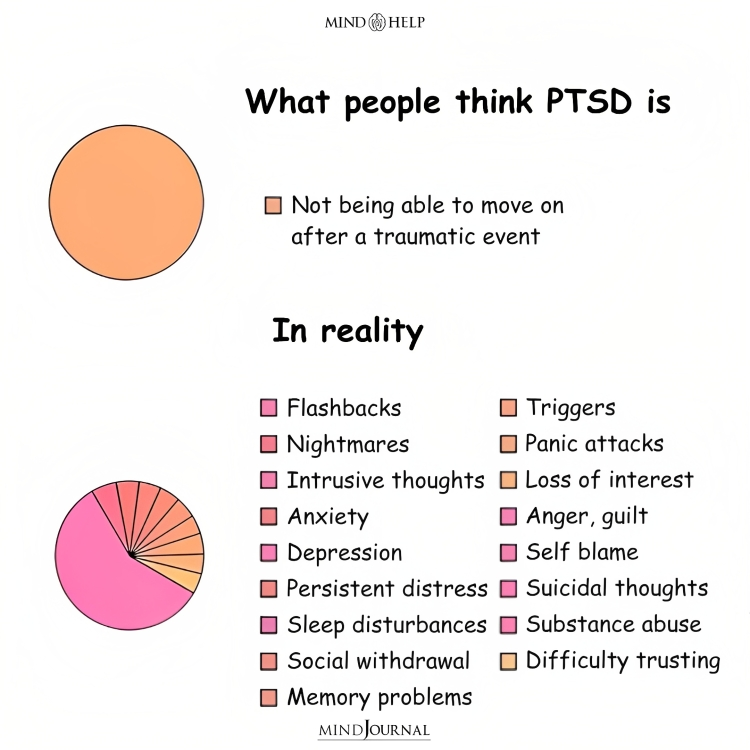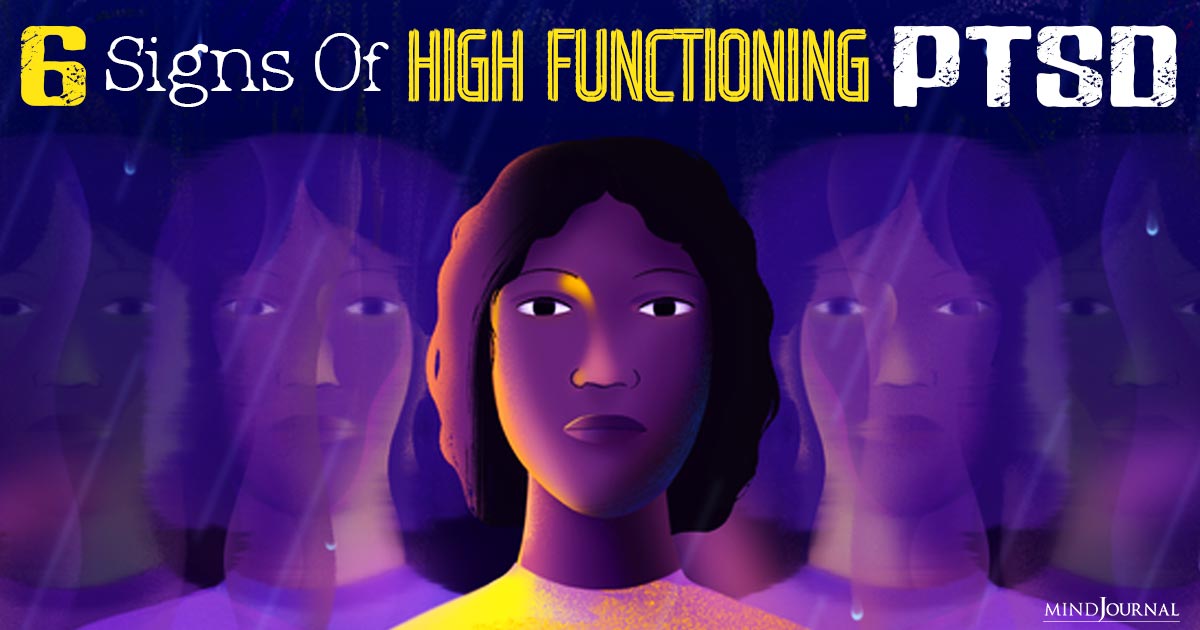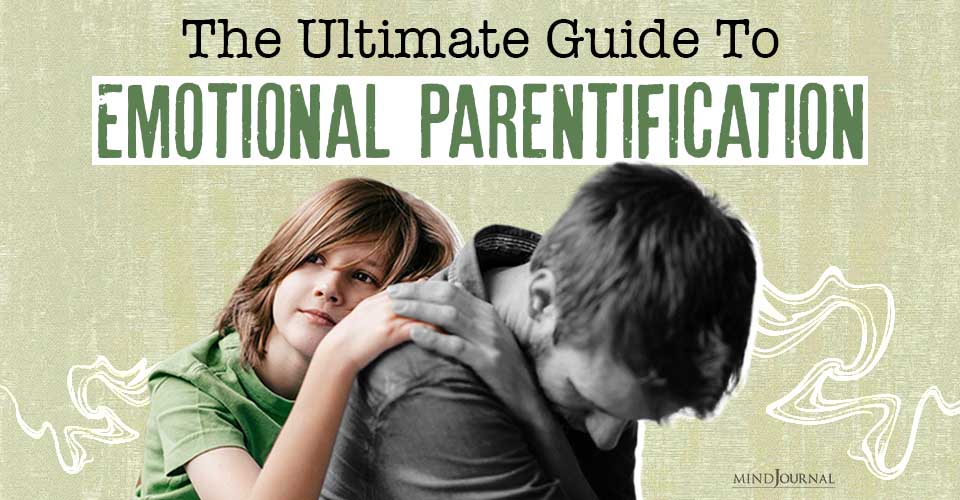You must have heard of high functioning anxiety, and just like that, high functioning PTSD or Post-Traumatic Stress Disorder is also a thing. And understanding what it is, is very important for understanding how complex trauma can be. Well, what is high functioning PTSD?
High functioning PTSD is a form of post-traumatic stress disorder that often goes unnoticed because those affected by it seem to have it all together on the surface. But beneath that seemingly calm exterior, the battle rages on.
Today, we are going to explore six important signs that are going to help you identify if you or someone you know is dealing with high functioning PTSD. So, let’s begin, shall we?
Related: 5 Crucial Life Skills You Learn From Surviving Complex PTSD
What Is High Functioning PTSD?
High-functioning PTSD refers to a condition where individuals experience post-traumatic stress disorder (PTSD) symptoms while still managing to maintain a relatively normal level of daily functioning.
Imagine having a secret superhero identity: on the surface, you may seem like any ordinary person, but deep down, you carry the weight of traumatic experiences. High-functioning PTSD can make it challenging to connect with others, cope with stress, or trust easily.
It’s like wearing an invisible cape that only you can see, reminding you of your past battles while you navigate through life’s ups and downs.

6 Significant Signs Of High Functioning PTSD
1. Displaying extreme emotional reactions.
One of the major signs of high functioning PTSD is this. You might notice that you’re really alert and cautious all the time, and feeling stressed and anxious has become second nature to you.
Jumping at small things and reacting super strongly, maybe even aggressively, can also be a sign. And if you find yourself getting mad quickly and having angry outbursts, it might be because being tense and on guard is taking its toll on you.
Being careful is normal but watch out if you find yourself super focused on what’s going on around you and constantly worried about threats. That’s not just being cautious, it’s your body’s fight or flight system working overtime due to past trauma.
2. Dealing with a number of physical problems.
When you’re dealing with high functioning PTSD, you might struggle with sleep, and your sleep schedule goes for a complete toss. Be it insomnia or having nightmares, having a good night’s sleep has become a distant dream.
If you find yourself awake at night feeling scared or you’re having constant nightmares about your past traumatic experiences, it’s possible that other physical symptoms like a rapid heartbeat, sweating, difficulty breathing, or feeling weak accompanies that.
All your physical responses point to one thing, and it affects your day to day life, making it harder for you to stay mentally and emotionally sane.
Related: PTSD Research Reveals 4 Surprising Insights You Need to Know
3. You feel negative emotions more strongly than usual.
One of the subtle signs of high functioning PTSD is this. Have you started to feel more negative than usual? Do you ever feel like the negative emotions are controlling you more than the positive ones?
Maybe you’re often scared, angry, upset, or feel depressed. You have lost interest in all those things that used to make you happy or find it really challenging to feel happy at all. You might also have negative thoughts about your loved ones, the world and even yourself.
Moreover, you feel ashamed and guilty of things that are not your fault. You are very hard on yourself, and tend to beat yourself up over the smallest of errors, and nothing or no one can make you believe otherwise.

4. Experiencing intense and sudden emotional flashbacks.
If you’ve been through something extremely traumatic, sudden emotional flashbacks can be considered to be a major sign. These intense emotions can hit you without warning and sometimes even without any triggers, which makes it really tough to handle.
When you experience emotional flashbacks, it’s like you’re caught up in a storm of past hurt, fear, or sorrow, with no way of escaping. Being in this zone can make it hard to understand what’s happening in the present moment now and what’s just an old memory.
You often feel like you are drowning in those feelings, making you feel confused and adrift as you try to figure out the difference between what happened in the past, and what’s happening right now.
5. You have over-achieving tendencies.
One of the unusual and subtle signs of high functioning PTSD is this right here.
Overachievers often try really hard to show they’re good enough, usually because they’re dealing with some inner conflict. You can’t get enough of success and recognition, so you keep chasing accomplishments to try and deal with unhealed emotional pain.
Every time you achieve something, it only makes you feel better for a short while, covering up your real struggles for just a moment. But it turns into an endless cycle – the more you succeed outside, the more you ignore what’s happening inside, hoping that praise from others will make your self-doubt go away.
Even if you achieve and accomplish a lot in your life, the problems you’re dealing with on the inside don’t just magically disappear; achievements are just a way to momentarily forget the things you are dealing with emotionally and mentally.
Related: 30+ Interesting Facts About PTSD
6. Being extra alert or showing signs of hyper-vigilance.
The feeling of being hypervigilant is when your personal alarm is always ringing, and there’s no way to shut it off. When you’re dealing with something like this, you feel super jumpy and alert all the time, and you notice every little thing that could mean trouble, even when everything seems totally safe and secure.
You often feel like you’re on edge, worrying that something awful is just around the corner. Being on high alert all the time can wear you out, and make you feel mentally and emotionally drained, since you’re always ready to spring into action.
It’s as if you’re caught in a cycle of looking out for danger, and are never really able to chill out or drop your defenses. Being hypervigilant, even though it’s supposed to protect you from unexpected dangers, actually smothers and cuts you off from others.

So, these are all the unusual and subtle signs of high functioning PTSD. If you relate to all or most of these signs, then you should consider seeking professional help. A therapist can really help you deal with these difficult feelings, so that you are able to live a more peaceful and happy life.
Do you relate to any of these signs of high functioning PTSD? Do let us know your thoughts in the comments down below!










Leave a Reply